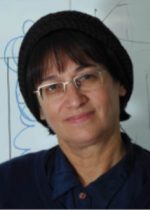וייס תמר, פרופ' (אמריטה)

Background
Prof. Patrice L. (Tamar) Weiss established the Laboratory for Innovations in Rehabilitation Technology (LIRT) at the University of Haifa (Haifa, Israel) in 2001. LIRT focuses on the development and evaluation of novel virtual environments, assistive technology interfaces, and co-located technologies to explore their effect on body functions (e.g. motor and cognitive abilities), activities and participation in community life. Disability populations of interest include spinal cord injury, stroke, cerebral palsy, developmental coordination disorder, autism and head trauma. Since 2008, Prof. Weiss has served as the lead researcher on the Gertner Institute ReAbility Online tele-rehabilitation system led by Prof. Mordechai Shani; this system recently won first prize in the AbbVie-TEDMED competition for sustainable healthcare.
Prof. Weiss has many national and international collaborations. For the past 8 years she has joined forces with a team of researchers from Italy and the UK to enhance social interaction through story-telling and collaborative games among high-functioning children with autism. Funded in 2009 by the European Union FP7 ICT STREP program (COSPATIAL – Communication and Social Participation: Collaborative Technologies for Interaction And Learning), which included the development of collaborative technologies to enhance social competence training strategies for children with autism. These studies were directed towards the needs of children with high functioning autism, but the work aimed to also provide guidance for future technology-based applications for people with other special needs. Prior to that she had investigated the use of novel technologies for children with autism including a street crossing simulation, a collaborative puzzle game and the StoryTable, a narrative scenario in which pairs of children are encouraged to engage in collaborative narratives.
Prof. Weiss has also developed a novel collocated technology to facilitate conflict escalation and de-escalation between Israeli-Jewish and Palestinian-Arab youth wherein face-to-face, tangible individual contributions were combined with joint actions. Funded by the Trentino-Haifa Research Agreement (2005-12) and the Israeli Science Foundation (2009-12), the results showed a significant shift to a more positive attitude toward a peer from another culture due to enhanced visibility of the conflict, and the notion that increased awareness enables a participant to deal with a dyadic cycle of conflict related actions and reactions. Prof. Weiss is co-principal investigator on a Israel Science Foundation grant (2012-15) to study healthy aging in complex functional environments that is part of a wider international study (based in Canada), funded in 2011 by a strategic development project on “A Rehabilitation Living Lab: Creating Enabling Physical and Social Environments to Optimize Social Inclusion and Social Participation of People with Disabilities”. She is a member of the academic board of the I-CORE Israel Center of Research Excellence proposal (Learning in a NetworKed Society (LINKS), “Co-creation of Knowledge in Technology-Enhanced Communities of Learning”). She also collaborates with a group of Italian and Haifa colleagues on testing cognitive function of healthy elderly museum visitors via pervasive sensors.
Prof. Weiss is a founding board member of the International Society for Virtual Rehabilitation, Lead program chair of the International Conference on Virtual Rehabilitation and was on the advisory board for the University of Southern California’s National Institute on Disability and Rehabilitation Research (NIDRR) RERC on Technologies for Successful Aging with Disability. Prof. Weiss has authored more than 140 peer-reviewed journal articles and book chapters and recently co-edited a book: Virtual Reality Technologies for Health and Clinical Applications (Series editor: P. Sharkey): Vol. 1: Applying Virtual Reality Technologies to Motor Rehabilitation, P.L. Weiss, E.A. Keshner, M.F. Levin (Eds), Springer Verlag, 2014.

